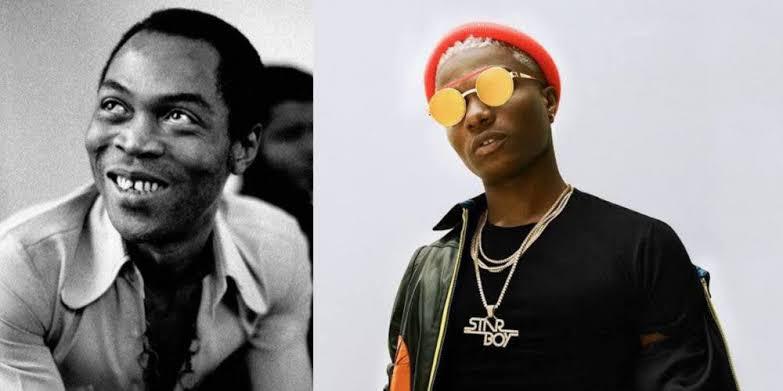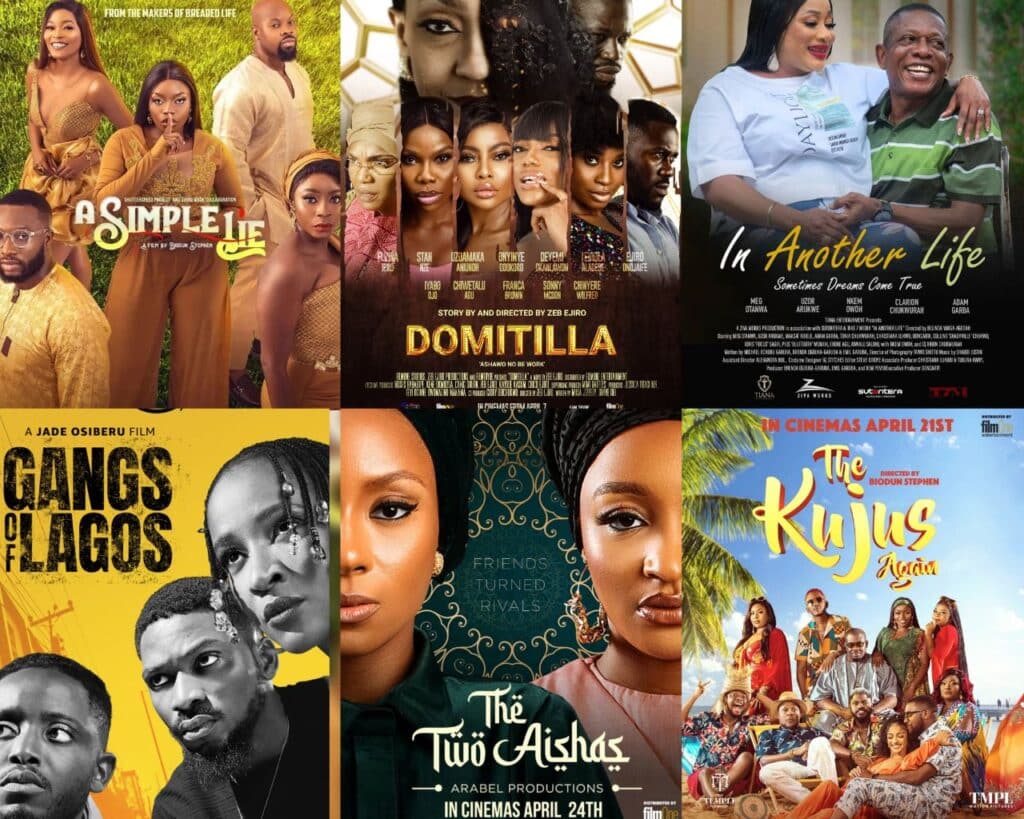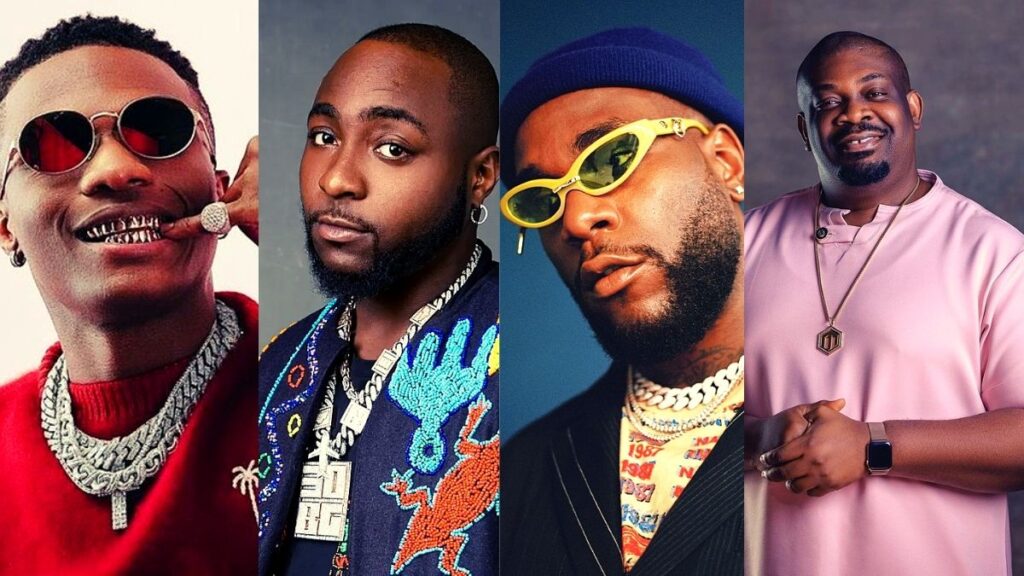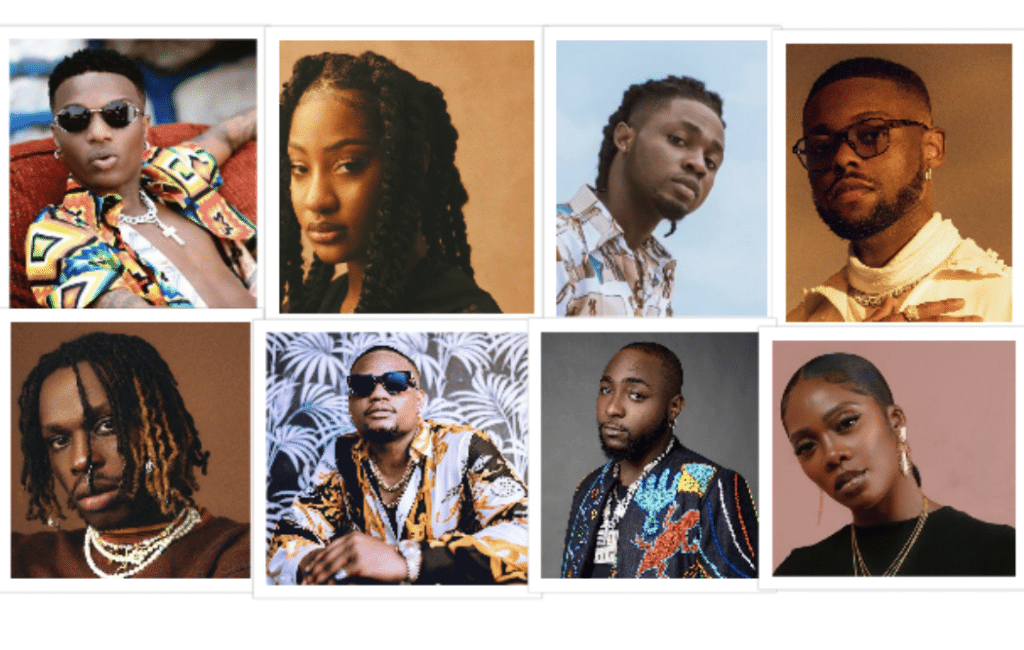In a world where the spotlight often falls on Hollywood and Bollywood, the Nigerian entertainment industry has steadily risen to take its well-deserved place on the global stage.
From the golden days of Nollywood, Nigeria’s prolific film industry, to the pulsating beats of Afrobeat music that have entranced audiences worldwide, the evolution of the Nigerian entertainment industry is a remarkable tale of resilience, creativity, and cultural prowess.
As we embark on this journey through the annals of Nigeria’s entertainment history, we discover how this vibrant nation has harnessed the power of storytelling, music, fashion, and technology to captivate local audiences and make an indelible mark on the world.

Join us as we delve into the past, explore the present, and peer into the promising future of the Nigerian entertainment industry, where talent and innovation continue to redefine what it means to be a global entertainment powerhouse.
Read Also: Top 10 Best Entertainment Blogs in Nigeria 2023
Evolution of the Nigerian Entertainment Industry
Early Beginnings
Traditional Nigerian entertainment forms are deeply rooted in the country’s diverse cultural heritage and play a significant role in shaping the contemporary entertainment industry. Indigenous music, dance, and storytelling are integral components of Nigerian culture and have influenced various modern forms of entertainment in the country.
- Music: Traditional Nigerian music is a rich tapestry of diverse sounds, rhythms, and instruments. Ethnic groups across the nation have their own unique musical traditions, such as the Yoruba talking drums, the the the Igbo xylophones, and the Hausa praise singers. These traditions have significantly influenced modern Nigerian music, from Afrobeat to highlife and gospel.
- Dance: Dance has always been an essential element of Nigerian entertainment. Intricate footwork, vibrant costumes, and energetic movements characterise traditional Nigerian dances. Dances like the Yoruba Bata dance, Igbo acrobatic dances, and the Kalangu dance of the Hausa people continue to inspire contemporary dance styles in Nigeria.
- Storytelling: Nigerian storytelling is a potent art form that has been passed down through generations. Griots, or storytellers, were responsible for preserving and sharing oral traditions, history, and cultural narratives. Today, Nigerian authors and filmmakers draw inspiration from these age-old storytelling traditions.
The influence of these traditional forms of entertainment is not limited to Nigeria alone; they resonate with people worldwide. Nigerian music, dance, and storytelling have transcended borders and have become a part of the global cultural landscape.
The fusion of indigenous elements with modern creativity has resulted in a dynamic and compelling entertainment industry that remains deeply connected to its cultural roots while embracing the digital age’s opportunities.
Read Also: Colourism in Nigeria: An Interview with Folu Storms (2023)
Colonial Era and Introduction of Western Entertainment
The impact of colonialism on Nigerian culture was profound, leading to both significant disruptions and transformative changes. One of the key areas where this influence was evident was in the emergence of Western-style theatre and music.
Emergence of Western-style Theatre
- Introduction of European Theatrical Traditions: Colonial powers, primarily the British, introduced European theatrical traditions to Nigeria during their rule. With its scripted plays and formal staging, European-style theatre replaced or coexisted with traditional Nigerian theatre forms, such as masquerades, storytelling, and oral performances.
- Shift in Cultural Narratives: The content and themes of theatre productions changed significantly. European plays often depicted colonial values, lifestyles, and narratives, which influenced the cultural stories being told on stage. This led to a shift away from traditional Nigerian stories and perspectives.
- Educational Institutions: Many theatrical activities took place within the context of educational institutions established by the colonial powers. Schools and universities became hubs for teaching and performing Western-style theatre. This laid the foundation for the development of modern theatre in Nigeria.
Emergence of Western-style Music
- Introduction of Western Musical Instruments: Colonialism brought Western musical instruments, such as pianos, violins, and brass instruments, to Nigeria. These instruments gradually supplanted traditional Nigerian instruments like talking drums, xylophones, and flutes in some contexts.
- Religious Influence: Christian missionaries played a significant role in the spread of Western-style music. Hymns and choral music were introduced through churches, and this had a lasting impact on Nigerian music.
- Fusion of Styles: Over time, Nigerian musicians began to blend Western harmonies and instruments with traditional African rhythms and melodies. This fusion gave birth to new genres, like highlife and juju music. Musicians like Fela Kuti later pioneered Afrobeat, a genre that was a fusion of various styles, including jazz, funk, and traditional Nigerian music.
- Recording and Broadcast Technology: The advent of recording technology and the spread of radio and later television allowed Nigerian music to reach a wider audience. This technology facilitated the growth of the Nigerian music industry and the emergence of iconic Nigerian artists known globally.
The emergence of Western-style forms in both theatre and music led to a complex interplay between tradition and modernity. While traditional art forms were influenced and sometimes supplanted, they were also adapted and incorporated into the new cultural landscape.
Read Also: Top 10 Richest Actors in Nigeria (2023)
Nollywood: The Rise of Nigerian Cinema
Nollywood, the Nigerian film industry, has a fascinating history marked by rapid growth and global recognition. It emerged as a result of various cultural, economic, and technological factors, and it boasts a unique story of pioneering films and actors.

Birth and Growth of Nollywood
- Early Influences: The roots of Nollywood can be traced back to the colonial period when mobile cinemas toured different regions of Nigeria. These screenings were often of foreign films. Additionally, traditional storytelling, oral traditions, and local theatre practices laid the foundation for Nigerian filmmaking.
- Economic Factors: In the 1980s and 1990s, Nigeria experienced an economic downturn. This, combined with the scarcity of foreign films and a growing demand for local content, created a niche for indigenous filmmaking.
- Home Video Revolution: The birth of Nollywood is often attributed to the release of “Living in Bondage” in 1992, directed by Chris Obi Rapu. Shot on a shoestring budget, this film was a massive success in Nigeria and inspired a wave of local film production.
- Low-Budget Productions: What set Nollywood apart was its ability to produce low-budget films quickly. The films were often shot on video and later distributed on VHS tapes. This accessibility made it easy for many aspiring filmmakers to enter the industry.
- Piracy and Distribution: Nollywood faced significant challenges due to piracy, which affected the profitability of films. However, this also helped in the wide distribution of films, making them accessible to a broad audience across Nigeria and beyond.
Pioneering Films and Actors
- “Living in Bondage” (1992): This film, directed by Chris Obi Rapu, is often considered the first Nollywood film. It tells the story of a man who joins a cult to attain wealth, and it was a major success, setting the stage for the industry’s growth.
- Liz Benson and Kanayo O. Kanayo: These actors were among the early pioneers of Nollywood and became household names. They featured in numerous successful films and contributed significantly to the industry’s growth.
- Genevieve Nnaji: Genevieve Nnaji is one of the most renowned Nollywood actresses and has achieved international recognition. Her talent and popularity have helped raise the profile of Nollywood globally.
- Osuofia (Nkem Owoh): Nkem Owoh’s comedic performances in films like “Osuofia in London” and “Osoufia in London 2” gained him immense popularity, making him a beloved figure in Nollywood.
- Ramsey Nouah: Ramsey Nouah is known for his versatility and has starred in numerous successful Nollywood films, earning acclaim for his performances.
Nollywood has come a long way since its humble beginnings. It has grown into the world’s second-largest film industry by the number of annual film productions, and it continues to evolve, addressing important social, cultural, and political issues through its storytelling.
Read Also: Top 10 Richest Fuji Musicians in Nigeria
Music Industry Transformation
Evolution of Nigerian Music Genres
The evolution of Nigerian music genres and the international recognition of Nigerian musicians is a testament to the country’s vibrant and diverse music culture. Nigerian music has undergone a remarkable transformation, and its artists have garnered global acclaim in recent years.

- Highlife: Highlife music, which originated in Ghana but gained immense popularity in Nigeria, is one of the earliest recorded Nigerian music genres. Highlife is characterized by a fusion of Western instruments with traditional African rhythms. Early pioneers like Bobby Benson and Victor Olaiya helped popularize this genre in Nigeria.
- Juju Music: Juju music emerged in the 1930s and is characterized by the use of traditional Yoruba instruments. Artists like King Sunny Ade and Ebenezer Obey became legendary figures in the Juju music scene.
- Afrobeat: Perhaps one of Nigeria’s most iconic contributions to the global music scene, Afrobeat was popularized by Fela Kuti in the late 1960s and 1970s. It combines elements of jazz, funk, and traditional Nigerian music. Fela Kuti’s politically charged lyrics and unique sound continue to influence musicians worldwide.
- Reggae and Dancehall: Nigeria has produced notable reggae and dancehall artists, including Majek Fashek, Ras Kimono, and Burna Boy. These artists have not only made their mark in Nigeria but have also gained recognition internationally.
- Hip-Hop and Rap: The late 1990s and early 2000s saw the rise of hip-hop and rap in Nigeria. Artists like Mode 9, Ruggedman, and later, MI Abaga and Olamide played a pivotal role in establishing Nigerian hip-hop as a force to be reckoned with.
- Afrobeats: Afrobeats, with an ‘s’, is a contemporary music genre that blends various styles, including Afrobeat, hip-hop, dancehall, and pop. Pioneered by artists like Wizkid, Davido, and Burna Boy, Afrobeats has taken the world by storm. It is known for its infectious rhythms and has earned global recognition and crossover appeal.
International Recognition of Nigerian Musicians
In recent years, Nigerian musicians have achieved widespread acclaim on the international stage. Among the most prominent artists to have garnered this global recognition are Tiwa Savage, Yemi Alade, Burna Boy, and Wizkid.
Tiwa Savage stands out as a preeminent pop sensation hailing from West Africa during the 2010s, boasting an impressive repertoire of songs and a collection of prestigious international accolades. Yemi Alade, a Nigerian songwriter and Afro-pop singer, first rose to fame when she claimed the prestigious Peak Talent title in 2009.

Meanwhile, Burna Boy’s musical prowess earned him the highly coveted Best Global Music Album award at the 2021 Grammy Awards. Equally, Wizkid’s star continued to rise as he clinched the Best Music Video award at the 2021 Grammy Awards for his collaboration with Beyoncé on the hit track “Brown Skin Girl.”
Read Also: MP3 Juice: The Best Free MP3 Music Download Platform
Television and Radio
The development of television and radio broadcasting has played a significant role in shaping the landscape of Nigerian entertainment. It has expanded the reach of local content and influenced the evolution of various entertainment forms.
Development of Television and Radio Broadcasting
- Early Days: Television broadcasting in Nigeria began in the late 1950s, with the establishment of Western Nigeria Television (WNTV) in Ibadan and Eastern Nigeria Television (ENTV) in Enugu. Radio broadcasting had been established earlier, with the introduction of the Radio Distribution Service in Lagos in the 1930s.
- The Birth of NTA: The Nigerian Television Authority (NTA), the national television network, was founded in 1977. NTA played a crucial role in unifying the country and broadcasting programs across its diverse regions.
- Proliferation of Channels: Over the years, the number of TV channels in Nigeria has grown significantly, including privately owned channels and satellite TV. This expansion has offered viewers a broader range of content choices.
- Private Radio and TV Stations: The liberalization of the media industry in the 1990s led to the emergence of private radio and television stations. These stations introduced more diverse content and competition into the industry.
Influence of TV and Radio on Nigerian Entertainment
- Promotion of Music and Music Videos: Nigerian television and radio stations have played a pivotal role in promoting Nigerian music. Music videos and songs are regularly featured, providing artists with a platform to reach a broader audience. The “Video Jockey” (VJ) culture on music television channels has also become an essential part of the music industry.
- Nollywood and Film: Television broadcasts have contributed to the growth of Nollywood, Nigeria’s film industry. Many Nollywood productions are first aired on TV, and this has helped the industry reach a massive audience. Additionally, actors and filmmakers often make appearances on TV talk shows and programs to promote their work.
- Comedy and Stand-Up Shows: Radio and TV have been instrumental in popularizing Nigerian comedy. Comedians often perform on radio stations, television programs, and at stand-up comedy shows. Shows like “Comedy Central Presents” have become iconic in this regard.
- News and Current Affairs: Television and radio are essential sources of news and current affairs in Nigeria. They have a significant role in shaping public opinion and addressing socio-political issues. Some talk shows and radio programs are dedicated to discussing these topics.
- Cultural Preservation: Through programs dedicated to cultural events, traditions, and history, TV and radio help preserve and showcase Nigeria’s rich cultural heritage. This includes the airing of cultural festivals, traditional dances, and storytelling.
- Sports Broadcasting: TV and radio have made Nigerian sports more accessible to fans. They broadcast local and international sports events, contributing to the growth of sports culture and encouraging local athletes.
Television and radio broadcasting have become integral components of Nigerian entertainment and culture. They provide a platform for artists, musicians, actors, comedians, and other entertainers to showcase their talents, and they continue to shape the evolving landscape of Nigerian entertainment.
Read Also: Social Media And Relationships: 7 Reasons Why It Is Like Mixing Oil And Water
Digital Revolution
The Role of the Internet and Social Media
- Content Promotion and Audience Engagement: The Internet and social media have become powerful tools for promoting content and engaging with audiences. Musicians, actors, and other entertainers use platforms like Instagram, Twitter, and Facebook to connect with their fans, share updates, and build their personal brands.
- Global Reach: Social media enables artists to reach global audiences, breaking down geographical barriers. The virality of content can quickly turn a local artist into an international sensation. Social media platforms significantly influenced the “Afrobeats” music genre’s worldwide popularity.
- User-Generated Content: Platforms like YouTube have empowered individuals to become content creators. This has led to the rise of YouTubers, vloggers, and influencers who create a wide range of entertainment content, from travel vlogs to makeup tutorials.
- Digital Marketing and Brand Partnerships: The internet has reshaped marketing in the entertainment industry. Artists and brands often collaborate on digital campaigns and advertisements, tapping into the massive online audience.
- News and Trends: Entertainment news is disseminated more rapidly through online and social media outlets. Fans can access real-time updates on their favourite celebrities, films, music releases, and more.
Online Streaming Platforms and Content Creation
- Streaming Services: Platforms like Netflix, Amazon Prime, and YouTube have become major players in the entertainment industry. They offer on-demand streaming of movies, TV shows, and user-generated content. Nigeria, too, has seen a rise in local streaming services like IROKOtv, which specializes in Nollywood content.
- Original Content Production: Streaming services are investing in original content, producing films and series that appeal to a global audience. This has created opportunities for Nigerian actors, filmmakers, and musicians to gain international recognition. For example, Netflix’s partnership with Nollywood has produced and distributed Nigerian films to a global audience.
- Monetization for Creators: Online platforms offer content creators monetization opportunities through ad revenue, sponsorships, and subscription-based models. Nigerian content creators on platforms like YouTube can earn income from their channels.
- Content Diversity: Online streaming platforms have diversified content offerings, allowing for a wide range of genres and themes, including those that might not have found traditional broadcast outlets. This diversity has been particularly important in promoting local and regional content.
- Convenience and Accessibility: Online streaming platforms provide on-the-go entertainment, allowing viewers to watch content at their convenience on various devices. This has altered viewing habits and encouraged binge-watching.
The internet, social media, and online streaming platforms have democratized entertainment in Nigeria and globally. They have expanded opportunities for content creators, connected audiences with a diverse array of content, and transformed the way we consume and engage with entertainment.
Read Also: Favourite Music Guru: Everything You Should Know
Challenges and Controversies
Piracy and copyright infringement have long plagued Nigeria’s entertainment industry, resulting in substantial financial losses estimated in the billions of naira. The Nigerian Copyright Commission (NCC) monitors, administers, and enforces copyright laws within the country.
Nevertheless, the NCC grapples with numerous challenges in its anti-piracy efforts, including inadequate funding, limited mobility, security concerns, allegations of favouritism, weak enforcement mechanisms, and deficient knowledge of information and communication technology (ICT).
In recent years, the Nigerian entertainment industry has witnessed a series of high-profile controversies that have captured public attention. Here are some of the most notable incidents:
- Annie Idibia and Tuface Marriage Crisis (September 2021): Annie Idibia made headlines when she took to social media to publicly express her concerns about her husband, Tuface, allegedly spending time at his ex-lover’s residence. This sparked a public exchange of words involving Annie and Tuface’s brother, Charles.
- Anita and Peter Okoye’s Divorce (August 2021): In a significant development, Anita Okoye initiated divorce proceedings against Paul, one-half of the iconic Psquare music duo, after seven years of marriage.
- Tonto Dikeh, Bobrisky, and the Kpokpogri Saga (September 2021): Tonto Dikeh raised serious allegations against her former partner, Prince Kpokpogri, suggesting that he possessed explicit videos used for blackmailing women. This controversy also saw Bobrisky, a prominent social media personality, publicly confronting Tonto Dikeh.
These controversies have added layers of complexity to the social and cultural narratives within the Nigerian entertainment industry, sparking discussions about relationships, personal ethics, and the responsibilities of public figures.
Read Also: The Himba Tribe: Meet the Distinctive Red People of Namibia whose Culture Intrigues Many
Future Prospects
The future of the Nigerian entertainment industry holds promise and potential, but it also comes with its share of challenges. Here are some predictions for the industry’s future, along with the opportunities and challenges it may encounter:
Opportunities
- Global Expansion: Nigerian entertainment, particularly Nollywood and Afrobeats, will continue to expand globally. International collaborations, partnerships, and touring opportunities for Nigerian artists will increase, further solidifying the industry’s global influence.
- Digital Innovation: The industry will benefit from continued digital innovation, with more artists, filmmakers, and content creators leveraging online platforms for distribution and monetization. Streaming services and digital marketing will play an increasingly vital role.
- Content Diversity: As the industry evolves, we can expect more diverse content that caters to various tastes and demographics, both domestically and internationally. This includes content targeting the global African diaspora and other international markets.
- Infrastructure and Investment: Infrastructure development and increased investment will further boost production quality and distribution capabilities. This may lead to larger budgets for films, better-equipped studios, and advanced technology for content creation.
- Emerging Talents: The Nigerian entertainment industry will continue to produce emerging talents, both in front of and behind the camera. As access to education and resources grows, more individuals will enter the industry, bringing fresh perspectives and creativity.
Challenges
- Piracy: The battle against piracy and copyright infringement will persist. Unauthorized distribution of content remains a major concern, affecting artists’ revenue and discouraging investment in the industry.
- Regulatory and Censorship Issues: The industry will grapple with ongoing regulatory and censorship challenges, which may stifle creative freedom and spark controversies. Striking the right balance between artistic expression and cultural sensitivities will remain a challenge.
- Funding and Investment: Despite improvements, financing issues may persist. The industry will need consistent investment and financial support to maintain its growth trajectory.
- Market Saturation: With the growth of the industry, competition may intensify. Market saturation can pose challenges for emerging talents and smaller production companies, making it difficult for them to break through.
- Quality Assurance: Maintaining consistent, high-quality content will be essential as the industry grows. Ensuring that production values and storytelling remain at a global standard will be a continuous challenge.
The Nigerian entertainment industry is poised for continued growth and global recognition. However, addressing the challenges, such as piracy, regulation, and funding, while capitalizing on opportunities, like global expansion and digital innovation, will be vital for ensuring the industry’s sustainable and thriving future.
See Also: African Fashion: The History, Significance, Challenges, and Future
Conclusion
The Nigerian entertainment industry is on a remarkable journey of growth and transformation. From its origins in traditional music, dance, and storytelling to the global phenomenon of Nollywood and Afrobeats, this industry embodies the spirit of resilience and creativity.
The influence of the internet, social media, and online streaming platforms has democratized content creation and distribution, bringing Nigerian culture to a global audience.
However, the path forward is not without its challenges. The persistent issues of piracy, regulatory complexities, and the need for intellectual property protection demand continuous attention.
The industry must also ensure equitable representation and opportunities, promote gender equality, and maintain the high standards of quality that have garnered international recognition.
As we peer into the future of the Nigerian entertainment industry, we see a landscape filled with opportunities for global expansion, digital innovation, and the emergence of new talents. It is a space where Nigeria’s rich and diverse cultural tapestry continues to captivate audiences worldwide.
In this dynamic industry, where tradition meets innovation, challenges meet opportunities, and creativity knows no bounds, the Nigerian entertainment scene stands poised for a bright and promising future.





